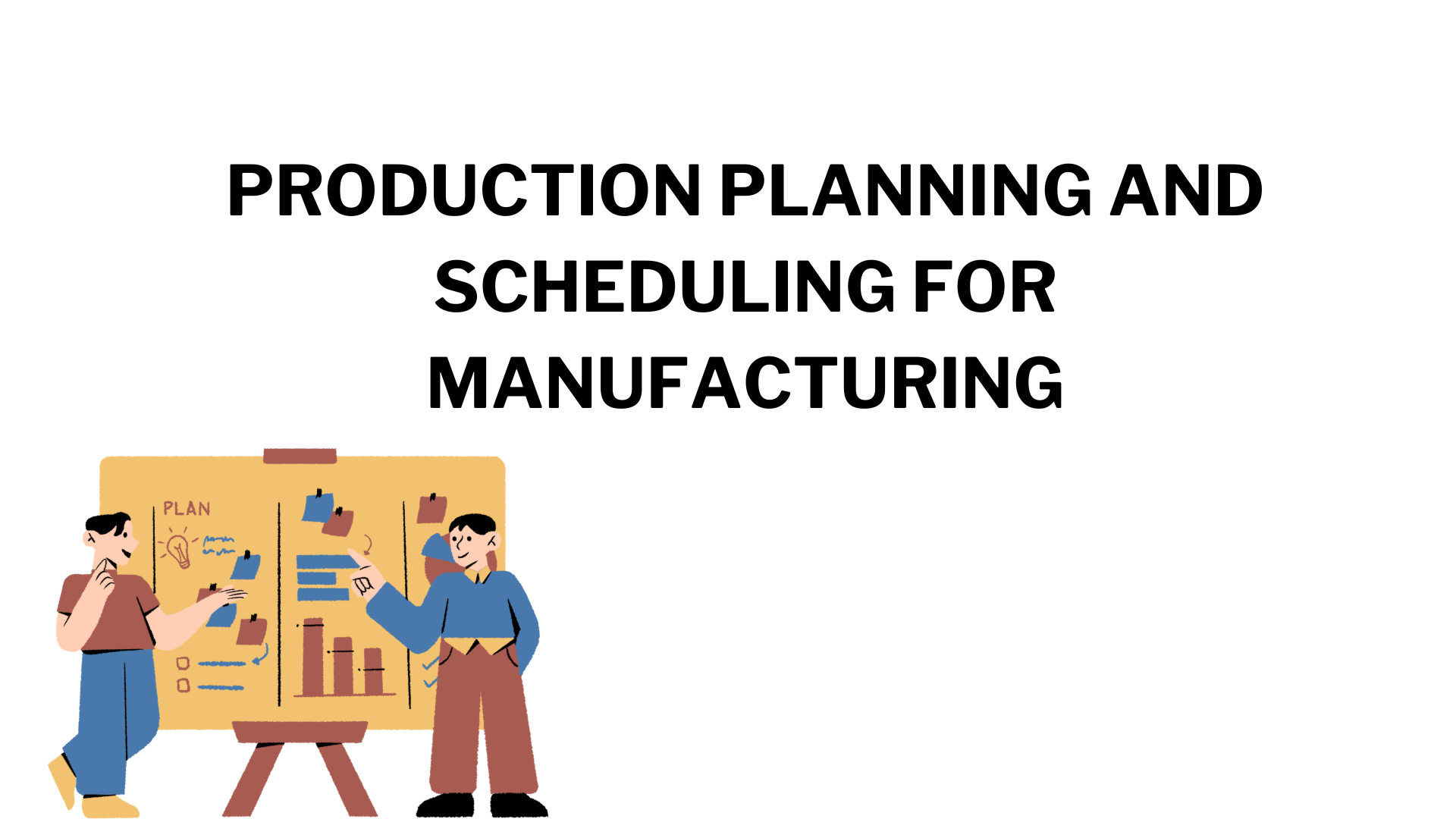In the fast-paced world of manufacturing, efficiency is paramount. From small-scale operations to large factories, effective production planning and scheduling are essential for meeting customer demands, optimizing resources, and staying competitive in the market. In this guide, we’ll delve into the intricacies of production planning and scheduling, exploring key concepts, best practices, and tools to streamline manufacturing processes and maximize productivity.
Understanding Production Planning and Scheduling:
- Production Planning:
- Production planning involves forecasting demand, determining production capacities, and establishing timelines for manufacturing activities.
- It encompasses strategic decisions such as product mix, production methods, resource allocation, and inventory management to ensure smooth operations and meet customer requirements efficiently.
- Effective production planning minimizes bottlenecks, reduces lead times, and maximizes resource utilization while balancing factors like cost, quality, and delivery schedules.
- Production Scheduling:
- Production scheduling focuses on the detailed allocation of resources, sequencing of tasks, and coordination of activities to execute the production plan effectively.
- It involves assigning specific tasks to machines, workstations, and personnel, considering factors such as processing times, dependencies, and capacity constraints.
- By optimizing the sequencing of production tasks, scheduling aims to minimize idle time, reduce setup/changeover times, and enhance overall workflow efficiency.
Best Practices for Production Planning and Scheduling:
- Collaborative Forecasting:
- Foster collaboration between sales, marketing, production, and supply chain teams to generate accurate demand forecasts based on market trends, customer orders, and historical data.
- Utilize forecasting techniques such as statistical modeling, trend analysis, and demand sensing to anticipate fluctuations in demand and adjust production plans accordingly.
- Capacity Planning and Resource Optimization:
- Conduct regular capacity assessments to identify production constraints, equipment limitations, and manpower requirements.
- Use advanced planning tools and simulation techniques to optimize resource allocation, balance workloads, and prevent overloading of critical resources.
- Lean Manufacturing Principles:
- Implement lean manufacturing principles such as Just-in-Time (JIT) production, Kanban systems, and Total Productive Maintenance (TPM) to minimize waste, improve flow, and enhance productivity.
- Streamline production processes, reduce setup/changeover times, and eliminate non-value-added activities to increase operational efficiency and responsiveness.
- Real-Time Monitoring and Adaptive Scheduling:
- Invest in manufacturing execution systems (MES) and enterprise resource planning (ERP) software with real-time monitoring capabilities to track production progress, identify bottlenecks, and make data-driven decisions.
- Adopt agile scheduling techniques that allow for dynamic adjustments to production schedules based on changing priorities, resource availability, and customer demands.
Tools and Technologies for Production Planning and Scheduling:
- Advanced Planning and Scheduling (APS) Software:
- APS software integrates production planning, scheduling, and optimization algorithms to generate feasible and optimized production schedules.
- These tools consider various constraints, such as resource capacities, material availability, and order priorities, to generate schedules that minimize lead times and maximize throughput.
- Manufacturing Execution Systems (MES):
- MES solutions provide real-time visibility into shop floor operations, capturing data on machine performance, production metrics, and quality control.
- They facilitate seamless communication between planning and execution stages, enabling quick response to schedule changes, production disruptions, and quality issues.
Conclusion: In the competitive landscape of manufacturing, effective production planning and scheduling are indispensable for achieving operational excellence, meeting customer expectations, and driving business growth. By adopting best practices, leveraging advanced technologies, and fostering a culture of continuous improvement, manufacturers can optimize their production processes, minimize costs, and stay ahead of the curve in today’s dynamic market environment.









